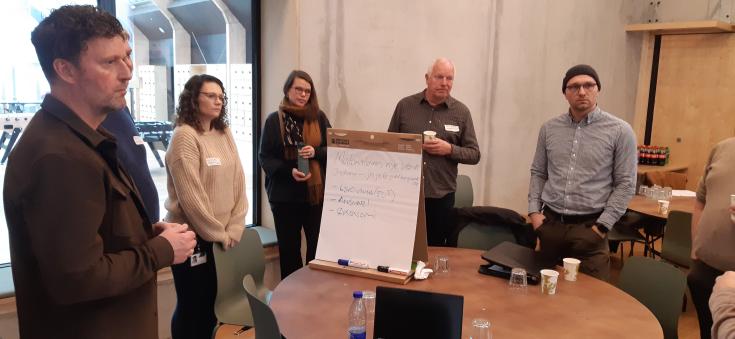3 recommendations for Guldborgsund's next steps

Guldborgsund Municipality is successfully progressing towards its goal of strengthening the value chain behind it the recycling of building materials.
It organised another successfull meeting of its regional and national stakeholders in December which brought insightful recommendations for the upcoming months and next activities developed under INERTWASTE. Guldborgsund Municipality will be involved in the value chain through ensuring resources supply via dismantling/deconstruction of buildings and by the resources demand via construction of new public buildings.
Participants of the meeting represented both public and private organisations, each with different roles. It is expected that progress in developing the circular economy agenda will be led by the public institutions, for example, by municipalities. The private stakeholders want to contribute with their extensive professional and business experience and will be able to use INERTWASTE project to network with other private companies, so that new collaborations can arise. Their involvement is also driven by their continued need to be able to provide high quality competitive bidding for future contracts from the public sector.
No matter if from public or private side, the meetings organised by Guldborgsund showed that all actors are willing to take part in the efforts to ensure a significantly greater reuse and recycling of building materials in Denmark. It is also clear that it is a complex topic and there is a clear need for Guldborgsund Municipality and the INERTWASTE project to assist and lead the way in this process.
For this to happen the work with the stakeholders and the important issues of circular economy need to be is supported very actively by Guldborgsund Municipality. With the selected showcases, Guldborgsund Municipality can make the difficult questions very concrete and tangible.
Through careful work with the media, a greater public awareness of the potentials of recycling can be created. And not least, a clear understanding among stakeholders and authorities about the need for new regulation and easier more procedures for recycling of building materials into new buildings.
The work of INERTWASTE should in the next phase find a clearer position in relation to other relevant projects. Based on the experience gained from the start-up of INERTWASTE, the following three recommendations can be made for the next steps:
- Firstly, the municipalities in the region can benefit from gathering in networks that work on relevant challenges and political issues that are shared.
- Secondly, relevant business promotion efforts and projects should be mapped and the possibilities for synergy effects uncovered.
- Thirdly, the possibilities for a new education should be investigated. The old understanding of "demolition" must be replaced with dismantling/deconstruction. And that discipline requires a completely different understanding of the materials in the older buildings.